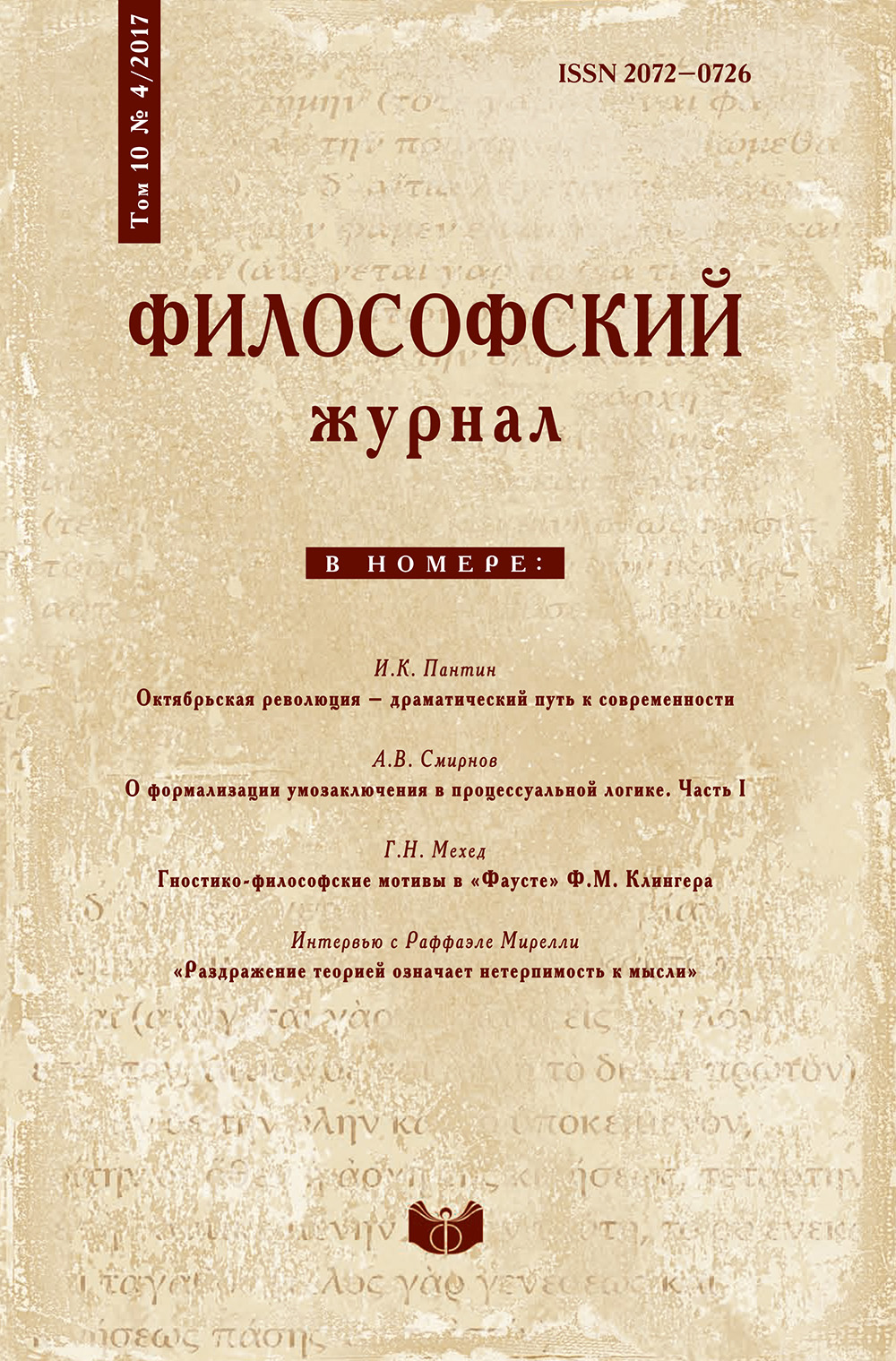The Gnostic roots of the philosophy of Friedrich Maximilian Klinger’s 'Faust'
DOI:
https://doi.org/10.21146/2072-0726-2017-10-4-121-138Keywords:
history of philosophy, fiction, Faust, Klinger, Kant, Gnosticism, critical rationalism, theodicyAbstract
In this article, the author brings to an analysis the novel Faust, His life, Deeds, and The Overthrow to Hell by Friedrich Maximilian Klinger, relatively little known to Russian readers, and investigates the Gnostic conceptual roots of Faust as an archetype of European culture. Conceptual nucleus of Gnosticism consists in the problem of theodicy, which is also the focal point of Fausts's most profound reflections. The absolutist propensity of Faust's thinking and his morbid perfectionism make him perceive the world through Gnostic optics as the matter of non-being and the 'veil' separating humans from the true and supreme being, God; this eventually results in his moral and psychological degradation and spiritual sterility. It can be argued that the figure of Faust, legendary man of science who is prepared to trade his soul for the possession of absolute truth, could only come into existence as a literary embodiment of the same metaphysical and epistemological problems that perplexed many generations of European philosophers. A close study of the novel's text helps the author reveal the indissoluble connection between the problems first faced by Gnosticism and the modern philosophy, in particular that of critical rationalism, symbolically expressed by Klinger in the figure of Faust.






